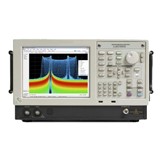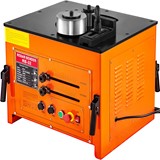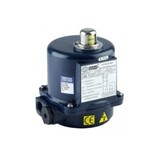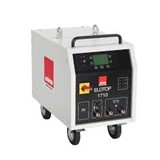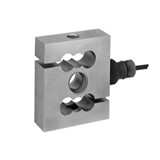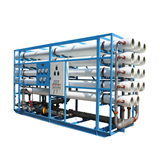"With these concerns in mind, Australia and South Korea launched the idea of ‘Asia Pacific Economic Co-operation’ to keep the world’s one remaining superpower, US focused on the Asia Pacific and to support open regionalism as much as possible. As a result ‘APEC’ was born, thanks to the efforts of trade and foreign policy makers in both Australia and South Korea. APEC was effectively ‘conceived’ in Seoul in January 1989 and the first APEC summit was held in Canberra in November that year."
"Since the Seoul and Canberra meetings of 1989, APEC has gone from strength to strength. According to the Australian Department of Foreign Affairs and Trade (DFAT), APEC members accounted for 44 per cent of world exports of goods and services in 2005 and 69 per cent of Australia’s trade with the world. Intra-regional trade is important too as 70 per cent of APEC’s merchandise exports were traded within the APEC region in 2005. APEC is a clearly key engine of growth for the international trading system."
"But as well as founding APEC, Australia and South Korea have forged a strong commercial relationship together. South Korea is one of the big-ticket markets as far as Australia is concerned. Australia exported A$11.7 billion worth of goods and services in 2005-06 and imported A$6.5 billion. South Korea is our third most important export destination and our fourth most important trading partner."
"Korea is also important in terms of numbers of companies too. According to Austrade research, there were 2300 Australian businesses selling to Korea in 2005-06 so the small and medium sized enterprises (SMEs) are getting in on the action as well as the larger commodity houses. Australia’s Senior Trade Commissioner to Korea, Elizabeth Masamune, believes that there are key areas for growth in areas like niche manufacturing and services. “Australia businesses feel everything here from fashion, fine food and wine to lifestyle products in leisure activities like horse racing and other recreational pursuits. South Korea’s growth and affluence has helped along with its IT savvy population,” she said."
"Australia and Korea are planning to get closer in terms of trade and investment, as a free trade agreement (FTA) is being negotiated between Canberra and Seoul. Both countries are keen to secure supply in each other’s markets and to iron out any other barriers that stand in the way of expansion in investment and services exports. They are not doing this in isolation though, as Australia itself has already negotiated agreement with New Zealand, Singapore, Thailand and the USA and is also talking with China, Japan, Malaysia, Chile, ASEAN and the Gulf Co-operation Council (GCC) nations. South Korea too has negotiated pacts with Chile and New Zealand is now close to finalising a pact with the USA."
"The potential South Korea-USA agreement – which is still to be approved by the US Congress and the South Korean legislature - has raised concerns from Australia’s beef producers. The agreement has been on the radar as South Korea is a key market for Australia (the third largest beef market, taking 150,000 tonnes of beef in 2006 – 16 per cent of total exports – valued at A$832 million or 17 per cent of total export value) and beef still receives a 40 per cent tariff in Korea."
" Australia has built up its market share partly because of strong the high quality of Australian beef, Korean consumption patterns, and partly because of the BSE (mad cow issue) affecting US and Canadian beef exports. There is fear that the end of BSE will enable the US – via FTA provisions – to adversely affect Australia’s market share. However, Australia has been able to build market share based on quality, the growth in the Korean market will help all producers (as Korean beef consumption is still 16 per cent below its pre-BSE level), and a comprehensive Korea- Australia FTA would help producers, Korean consumers and ultimately prompt increased liberalisation in the region, and eventually in the international trading system as well."
"According to Glenn Feist, General Manager, for Meat and Livestock Australia (MLA), Korea the impact on Australian beef exports of a Korean-US FTA will depend on “a host of factors”. “Australian beef used to get tarred with same brush as American beef in being considered ‘foreign’ in the Korean market. But with BSE, we’ve jumped a few rungs in terms of perceptions of quality with the Korean consumer. One reason is that our producers tailor their products to what the Korean consumer wants, whilst our competitors just export excess stock once they’ve satisfied the domestic market.”"
"The current issue concerns about the Korea-USA FTA include final protocols applied to US imports (bone in particular), the nature of Korean inspection arrangements for US product, the availability and price of US beef. Whilst I was in Seoul, one shipment was sent back to the US, because it contained bone and was suspected to have been bought by a Korean buyer in the US market as a domestic purchase. According to Feist, other issues are US prices and “overall levels of Korean beef consumption” whilst the MLA in Australia has officially requested that the “Korean tariff arrangements for Australian beef mirror those granted to the US under this FTA. The only realistic avenue for this is the negotiation of closer economic relations between Australia and Korea, probably through an FTA.”"
"This year, the APEC Summit is being held in Australia again – 18 years after its inception in South Korea and Australia. Let’s hope that these two founding nations of APEC again show leadership to open up trade and investment in the region and in the rest of the global trading system despite any beef that they may have over Seoul’s FTA with Washington."
- Suppliers
- New to IndustrySearch? Book a Demo
- Advertise with us
- Login
- Email Marketing
- Buyers
- Get Quotes
- Articles & Ideas
- Login
- Subscribe to newsletter
- My Details
- Get Quotes
- Automation & Control
- Automotive Workshop Equipment
- Commercial Cleaning Equipment & Supplies
- Construction Equipment & Heavy Machinery
- Conveyor Systems & Components
- Electrical & Power Generation Equipment
- Electronic Components
- Farming & Agriculture
- Food & Beverage Processing
- Forklifts & Forklift Attachments
- Hydraulic & Pneumatic Equipment
- Industrial Materials, Tools & Components
- Industrial Pumps
- IT Hardware & Industrial Computing
- IT Software & Applications
- Laboratory Equipment & Instruments
- Manufacturing & Industrial Equipment
- Material Handling & Lifting Equipment
- Metalworking & Machining
- Mining Equipment & Machinery
- Packaging & Labelling Machinery
- Pallet Handling Equipment
- Personal Protective Equipment
- Security & Surveillance
- Test & Measurement
- Transport & Logistic Equipment
- Warehouse Storage, Shelving & Racking
- Waste Treatment & Environmental Management
- Welding Machines & Accessories
- Woodworking & Joinery Machines
- Workplace Equipment
- Workplace Safety Equipment
- Get Quotes
- Automation & Control
- Automotive Workshop Equipment
- Commercial Cleaning Equipment & Supplies
- Construction Equipment & Heavy Machinery
- Conveyor Systems & Components
- Electrical & Power Generation Equipment
- Electronic Components
- Farming & Agriculture
- Food & Beverage Processing
- Forklifts & Forklift Attachments
- Hydraulic & Pneumatic Equipment
- Industrial Materials, Tools & Components
- Industrial Pumps
- IT Hardware & Industrial Computing
- IT Software & Applications
- Laboratory Equipment & Instruments
- Manufacturing & Industrial Equipment
- Material Handling & Lifting Equipment
- Metalworking & Machining
- Mining Equipment & Machinery
- Packaging & Labelling Machinery
- Pallet Handling Equipment
- Personal Protective Equipment
- Security & Surveillance
- Test & Measurement
- Transport & Logistic Equipment
- Warehouse Storage, Shelving & Racking
- Waste Treatment & Environmental Management
- Welding Machines & Accessories
- Woodworking & Joinery Machines
- Workplace Equipment
- Workplace Safety Equipment
Trusted by 1,000,000+ Australian industrial buyers
Buyers
- Discover products & solutions
- Login
- Subscribe To Newsletter
- Browse All Products
- Read Articles
Suppliers
Advertise
- Promote your products & solutions
- New to IndustrySearch? Book a Demo
- Login / Forgot Password
- Advertise Your Products
- Success Stories
- Email Marketing
- Suppliers
- Advertise with us
- Login
- Email Marketing
- Buyers
- Get Quotes
- Articles & Ideas
- Login
- Subscribe to newsletter
- My Details
Get Quotes
- Automation & Control
- Automotive Workshop Equipment
- Commercial Cleaning Equipment & Supplies
- Construction Equipment & Heavy Machinery
- Conveyor Systems & Components
- Electrical & Power Generation Equipment
- Electronic Components
- Farming & Agriculture
- Food & Beverage Processing
- Forklifts & Forklift Attachments
- Hydraulic & Pneumatic Equipment
- Industrial Materials, Tools & Components
- Industrial Pumps
- IT Hardware & Industrial Computing
- IT Software & Applications
- Laboratory Equipment & Instruments
- Manufacturing & Industrial Equipment
- Material Handling & Lifting Equipment
- Metalworking & Machining
- Mining Equipment & Machinery
- Packaging & Labelling Machinery
- Pallet Handling Equipment
- Personal Protective Equipment
- Security & Surveillance
- Test & Measurement
- Transport & Logistic Equipment
- Warehouse Storage, Shelving & Racking
- Waste Treatment & Environmental Management
- Welding Machines & Accessories
- Woodworking & Joinery Machines
- Workplace Equipment
- Workplace Safety Equipment
Get Quotes
- Automation & Control
- Automotive Workshop Equipment
- Commercial Cleaning Equipment & Supplies
- Construction Equipment & Heavy Machinery
- Conveyor Systems & Components
- Electrical & Power Generation Equipment
- Electronic Components
- Farming & Agriculture
- Food & Beverage Processing
- Forklifts & Forklift Attachments
- Hydraulic & Pneumatic Equipment
- Industrial Materials, Tools & Components
- Industrial Pumps
- IT Hardware & Industrial Computing
- IT Software & Applications
- Laboratory Equipment & Instruments
- Manufacturing & Industrial Equipment
- Material Handling & Lifting Equipment
- Metalworking & Machining
- Mining Equipment & Machinery
- Packaging & Labelling Machinery
- Pallet Handling Equipment
- Personal Protective Equipment
- Security & Surveillance
- Test & Measurement
- Transport & Logistic Equipment
- Warehouse Storage, Shelving & Racking
- Waste Treatment & Environmental Management
- Welding Machines & Accessories
- Woodworking & Joinery Machines
- Workplace Equipment
- Workplace Safety Equipment
Trusted by 1,000,000+ Australian industrial buyers





